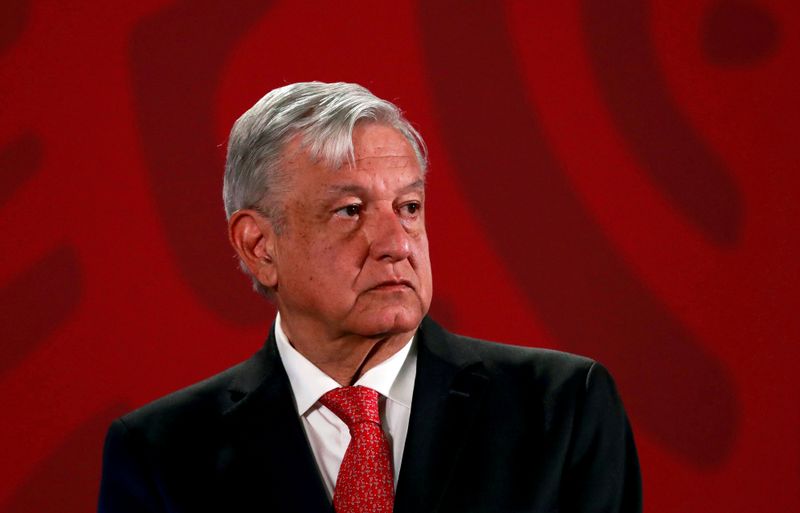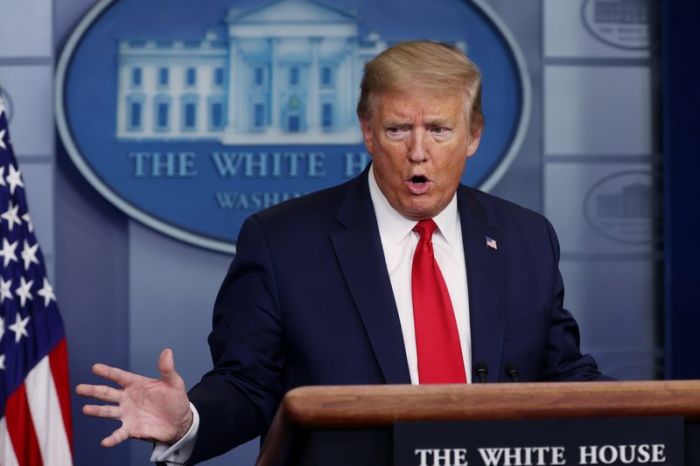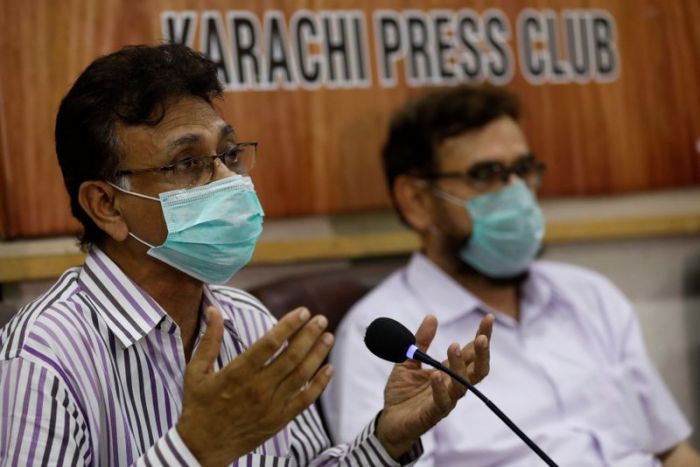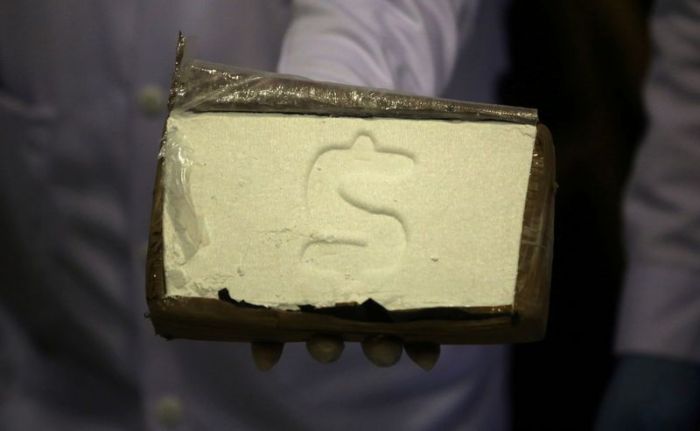MEXICO CITY (Reuters) – Mexico will increase spending on social programs and infrastructure projects by $25.6 billion, President Andres Manuel Lopez Obrador said on Wednesday, in a delayed attempt to jump-start the coronavirus-hit economy.
Economists said the move was a welcome relaxation of Lopez Obrador’s rigid adherence to frugality during the first weeks of the crisis, but it was not immediately clear how much of the package represented increases over previously budgeted spending.
Lopez Obrador said he would not take on new debt to finance the package, promising instead to shift funds from other areas of government in Latin America’s second biggest economy.
The announcement was followed by news Mexico had issued $6 billion in bonds partly to guarantee resources for the coronavirus response. The finance minister said the issuance did not exceed already authorized debt limits.
On Tuesday the central bank unveiled $31 billion in stimulus and an interest rate cut in support for the financial system, with about a third destined to a financing facility for banks to boost lending.
“Efficiency, honesty and austerity will allow us to increase the budget to strengthen social programs and critical projects by 622,556 million pesos ($25.6 billion),” Lopez Obrador said at his regular morning news conference.
Energy, health and security, along with social programs and flagship infrastructure projects such as an airport and refinery will be strengthened by the package, Lopez Obrador said.
The announcement was short on details, but appeared to go far beyond $2.5 billion he last week said the government was preparing to inject in May.
Nikhil Sanghani, an economist at London-based Capital Economics, warned the economy still risked going into a deep recession without greater support.
He said that at around 3% of GDP, the package was far smaller than the fiscal stimulus enacted in other emerging markets.
“We fear that this has come too late in the day. That’s why we still expect an 8% fall in Mexico’s GDP this year, and only a gradual recovery after the coronavirus shock,” Sanghani said.
Lopez Obrador said the package would be financed through spending cuts in non-essential areas and a reduction of up to 25% in high-level bureaucrat’s salaries, including his own.
He said he would not increase revenue through higher taxes or fuel price hikes.
Mexico’s finance ministry said it placed bonds with 5-year, 12-year and 31-year maturities with yields of between 4.125% and 5%. It said the $6 billion issue was one of the country’s largest, and that strong demand showed investor confidence in the government’s economic management.
“This measure helps consolidate the (government’s) funding sources, guarantees resources to face the crisis derived from #Covid19, as well as operate programs and attend any future adversity,” Finance Minister Arturo Herrera said on Twitter.
Left-leaning Lopez Obrador repeated a vow to issue 3 million loans for small businesses in the formal and informal economy and to create 2 million jobs.
“This will make it possible to protect 70% of Mexican families, equivalent to 25 million homes, especially the poor and middle class,” Lopez Obrador said.
It was not immediately clear what areas would face cuts or how 2 million jobs would be created amid a steepening recession.
“The specifics about the programs that will accomplish that are still lacking,” said Alberto Ramos, economist at Goldman Sachs.
Ramos said Mexico has more fiscal space than many peers for a significant package to support both vulnerable citizens and business, but that it was still resistant to help companies that provide jobs and pay taxes.
“If they are not assisted and go bankrupt, the social pressures will intensify and the budget suffers as tax collection declines,” he said.
(Reporting by Anthony Esposito, Diego Ore and Raul Cortes Fernandez; Editing by Jonathan Oatis, Sonya Hepinstall & Shri Navaratnam)























